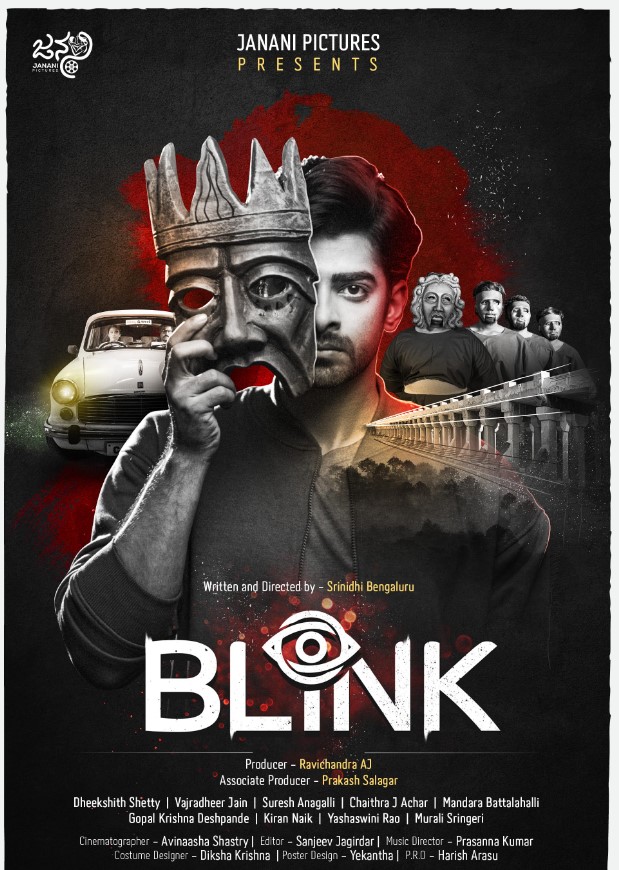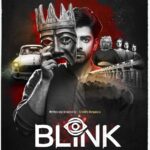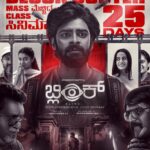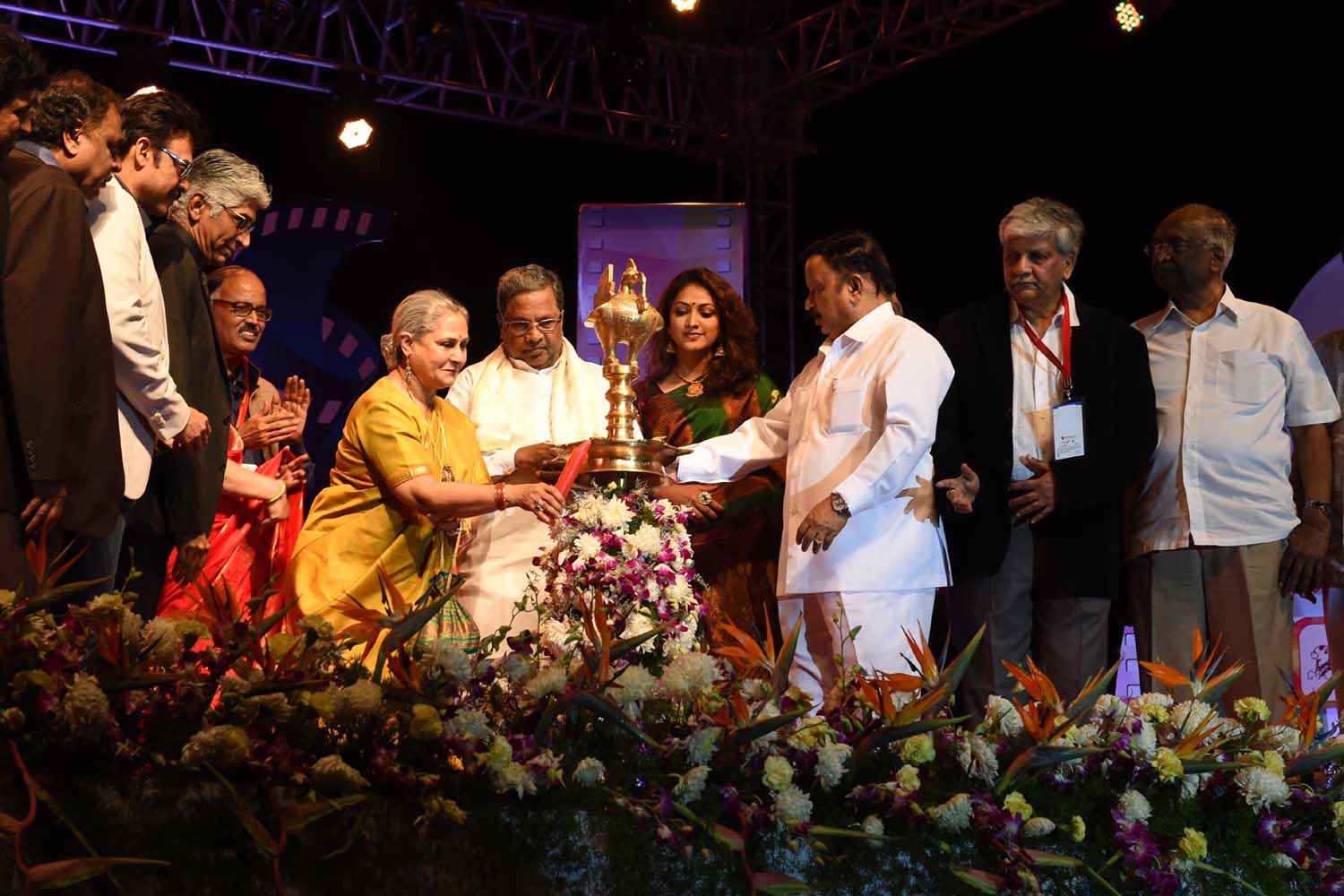Blink, by debutant director Srinidhi Bengaluru, I venture to propose, is neither science nor fiction. It is more of a fatuous film that tries to put science and fiction into a poorly made, mediocre film, whose director, has failed to understand or appreciate the concept of sci-fi.
Merely mouthing the words sci-fi or time travel does not make a film of the genre. It needs a lot science, thought, understanding and scripting, and most importantly, the idea of cinema, as to what constitutes a sci-fi and how one can make a film in the idiom / genre such an exciting enterprise expects, to have audiences fully engaged in its proceedings.
In my opinion, the film is simply insufferable to sit through even for ten minutes. I can only pity the poor audiences that reposed faith in the paparazzi and social media promotions by interested well-wishers deceived into believing Blink is one of a kind film to arrive on Sandalwood marquee.
I can say, audiences, led by the hyperbolic paean sung in its favour, are pitifully left with no choice but to don their ‘blink’ers on, and resort to shut eye, in the darkened theatres, through the confounding, contrived and convoluted tosh of a film.
Its 2:07:17 min of abject narrative tries to have them curiously interested in it with its dialogue(thon) and hocus-pocus about an eye drop called Vremea (Romanian for weather/time) that lets one travel in time by the ‘Blink’ of an eye. Woe me!
Yes, science fiction (sci-fi) is described as genre typically dealing with imaginative and futuristic concepts such as time travel, parallel universes, among others. True, Blink, as its young filmmaker says, emboldened by veteran and visionary Singeetam Srinivasa Rao’s 1991 Telugu film Aditya 369, inspired by the H G Wells 1895 The Time Machine, propelled him to also try his aspirational film making test of fire at the genre.
However, trust me folks, drawing inspiration and being excited about a successful work is one thing. Executing the same with equal amount of finesse and flamboyance, degree of understanding and creativity, needs more than that sliver of inspiration.
For, the film’s ridiculous wink and vanish prank the stalker (who we are given to know, as the film progress, is Arivu), plays upon the protagonist Apoorva, is simply pathetic. So are the riddles he pins the poor job less petrified beau constantly with.
Just look at this exchange he has with him appearing from thin air out of the blue: How is Yashoda doing? Go and tell her that her husband is not dead. I am the one you need most. This even as the dumbstruck man keeps questioning Who are you? I don’t recognise you? How do you know my mother? To which the zombie man quips bemusedly I will tell you at the right moment.
And us audiences are expected to perk up, be on the edge of our seats, with eyes wide open and await the Revelation to come. It does come, as the stalker further teases the befuddled man going insane later on with another quip: Tell her (his mother) that her husband is not dead yet.
This exchanges are between Apoorva, yet to complete studies, and on a job hunt, even as well settled Swapna, swoons over him drunk in cupid’s dandelion, and the gargoyle of a man Arivu assailing him with questions, instructions and warnings not to go after him. “Apoorva following me is not worth it. You cannot get hold of me now. I myself will meet you and reveal all. Don’t waste your time following me until then. I need a bit more time. Now you leave, I have some work to do.”
This is just a sample. Right through its two plus hours of screen time, the exchanges go on ad nauseum without let or hindrance as the verbal diarrhoea lash incongruously both at petrified Apoorva and the perplexed audiences to amusement.
Wow! If this is a prelude to the science fiction to come, then woe betide, one must rewrite the lexicon of the word itself. These shoot and scoot exchanges between Arivu and Apoorva (note the meanings of their names – unique (Apoorva), and (Arivu) knowledge), keep happening even as a play rehearsal seeks to provide a context to this verbal volleys.
Also songs played out like the hip-hop Blink anthem Aaganthuka –Blink – Jeevana Ogatu (Life is a Riddle), Running in circles, it is a circus we in the centrifuge, Discover as we enter new perceptions, we get introduced to a whole new uncomfortable truth, searching for a clue summaries audiences own delirious dilemma – whether to sit and suffer or scoot by the nearest exit.
While the character in the play keeps repeating: “I will kill my father, he said.” The play being the Greek tragedy Oedipus Rex, wherein Tiresias, the prophet, states that Oedipus himself would murder his father.
An agitated Swapna tries to drum sense into Apoorva, you have more of Arivu driving the lovelorn beau into insanity. Read this. Having drawn him to a ramshackle home under the guise of giving him an editing job, Arivu asks: Is Swapna fine? How is Yashoda? Is her leg pain fine? I had told, you when the time comes, I shall be meeting you. Now that time has come. I know you have a lot of questions. I will try to answer them.
Instead of answers, the man propositions Apoorva with a 10 lakh offer for an experiment he seeks to conduct. The Revelation finally arrives. “You have a weird strength. Basically it is difficult to not blink for two / three mins. But you have an incredible ability not blink for 30 mins straight.”
And Abracadabra out pops the Vremea – the potent liquid with extraordinary power. “One Blink after the application of this eye drop is enough for one to travel 33 years in time into the past. Vremea is designed for time travel.”
It is an hour almost into the two hour plus film when it finally dawns it is going to be a time travel sci-fi one wherein you will watch how Apoorva makes use of Vremea to know the truth of the past.
What could have been a simple flashback and forward (the film adopts four timelines 1991, 2021, 2001 and 1996 non-linearly) the metaphorical tragic tale – for the Oedipus play and the songs that play out at regular intervals are supposed to be hints of Apoorva’s past, you have the film maker indulge in all sorts of inane mumbo-jumbo to have audiences hooked to the purportedly pathetic sci-fi pastiche.
In trying to give a regional and local flavour to the Grecian tragedy, as also the much touted Grandfather Paradox concept, Srinidhi Bengaluru, aspiring to make it into the big league of the “other” cinema, fails to find his feet.
And therein lies a tragedy of titanic proportions. Of what use are songs, plays and gimmicks when the actual film starts only after boring to death and teasing the audiences patience for nearly an hour.
The film could have done with much more crisper scripting and editing which could have sliced the run time by at least half hour for before long tedium sets in watching the stupefying game play between Arivu and Apoorva.
One saving grace though is the film’s haunting and folksy music and so rooted in traditional theatre by Prasanna Kumar M S that seeks to provide a context to the narrative through the lyrics written by writers like Jayant Kaikini and render equally evocatively by the ensemble playback singers.
If only more thought was put into the form making it visually arresting rather than try to build the tempo of the narrative through the tedious and tiresome wink and blink pattern adopted to warm up the audiences to the time travel tale which almost happens at the fag end by which time ennui has already set in.
Of course, one must give it to the young director, in that he has not hesitated to tread the trail less taken. In this, Srinidhi Bengaluru, joins a bandwagon of newbies seeking to break the routine and bring in a new normal of discerning, thinking films to the Sandalwood stable.
True, as the film maker himself eloquently eulogies: “I have not followed the typical Kannada cinema template. Instead, alongside my friends, we’ve dared to rewrite the rules of filmmaking with this project.” Touche!

S Viswanath is veteran Film Journalist / Critic & involved in various key capacities at many International Film Festivals circuits across the Globe also co-author of book ‘Random reflections: kaleidoscopic musings on Kannada cinema.












Leave a Reply